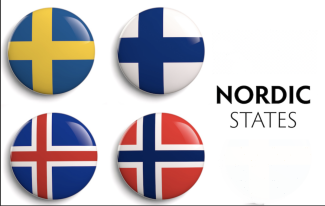If you type ‘sustainability’ into Google Trends, you see a jagged line. This is clearly a term that swims in and out of human consciousness. Over the last seven years, however, despite the sawtooth ups and downs, the direction of travel is clear: more people are interested. Today, some of the people using the search engine may be looking for work. After all, huge businesses like Diageo and Constellation already have job titles such as Head of Sustainable Development, and Global Director of Sustainability and smaller firms will soon be looking to recruit.
But to say that people and businesses are thinking more about sustainability is far too simplistic. ‘Sustainable business’, for example seems to be attracting online searches at a much faster rate than ’sustainable agriculture’ or ‘sustainable farming’, but not as quickly as ‘sustainable packaging’ or ‘sustainable marketing’.
All of these ways of looking at sustainability — and more — are going be addressed at this year’s Meininger’s International Wine Conference by a team of high-level speakers, including:
- Saskia de Rothschild, director of Domaines Barons de Rothschild,
- Professor Marc Dressler, heads of the Wine, Sustainability & Sales Masters course at Neustadt University,
- Michael Bernecker, CEO of the German Institute for Marketing in Cologne,
- Professor Simone Loose, head of the Institute for Wine and Beverage Management at Geisenheim University,
- Dr. Helena Ponstein, author of Avoiding Greenhouse Gas Emissions from the Global Wine Value Chain,
- Dr. Keith Ulrich, Chairman of the board of the certification agency, Fair and Green
- Sara Norell, director of Assortment, Purchasing and Supply Chain at Systembolaget in Sweden.
The aim of the conference is to look at sustainability holistically.
In terms of environmental impact, there is little point in growing grapes organically if the winery is heated and lit by fossil fuels and the wine it produces are being sold in heavy glass bottles. The days of printing glossy brochures may be numbered, but so too, for many, are frequent long-haul trips in business class.
Even climate change sceptics in the business world are increasingly discovering that their competitors and customers may not share their views. Companies ranging from Louis Vuitton - “committed to an ambitious target of reducing emissions by 55% by 2030” — to McDonalds — “Our aims include achieving net zero emissions across our entire business and value chain by 2040” — are taking pains to present their green credentials.
Sustainability doesn’t just matter to the end consumer. It may also be a deal breaker when it comes to making a sale to another business. Anyone who thinks that sustainability doesn’t matter would be wise to give up on even trying to get a listing in a Nordic monopoly, but they will soon find that big retail chains are similarly demanding. If a product’s CO2 footprint isn’t already on the buyer’s check list alongside quality, packaging, available volumes and price, it soon will be.
Where financial sustainability fits
But, and it is a big ‘but’, however green any company may want to be, it has to remain profitable after paying its employees and suppliers. In other words, it has to consider its own sustainability.
It is easy to decide to cut back on overseas travel, and many jaded sales executives may relish the chance to spend more time with their families. But those same salespeople know how often they have clinched a deal over lunch or in a bar at the end of the day. Will this happen as frequently over Zoom?
Switching from a heavy bottle to a light one may reduce the CO2 output, but what if it also reduces the appeal of the wine to the consumer and leads to slower sales? Those glossy brochures served a purpose, otherwise no one would have printed them. Is the freshly-designed website going to be as effective. And what are the alternatives?
And how about wine tourism? Shouldn’t we be also thinking about the carbon footprint of all those people who’ve taken planes and driven in cars to get to our wineries?
We can’t promise to answer all of these questions or to solve all of the problems.
But we will start a discussion in this publication and at our conference. The calibre of the speakers — and of the attendees — will certainly help anyone in the wine industry to address these increasingly important issues with a far greater depth of knowledge.
Maybe we’ll even get to understand why these Google searches look so like a range of mountains.






